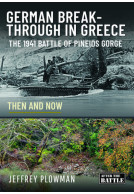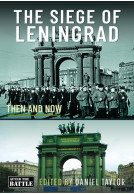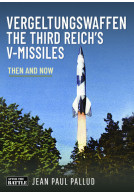Bases Of Bomber Command (Hardback)
Then and Now
Imprint: After the Battle
Series: Then and Now
Pages: 360
Illustrations: 830
ISBN: 9781870067355
Published: 30th April 2001
Last Released: 21st September 2022
(click here for international delivery rates)
Need a currency converter? Check XE.com for live rates
Sixty years ago over 100 aerodromes in east and north-eastern England were occupied by the men and machines of RAF Bomber Command. The tenure of the majority of the bases was brief — some six years — but during that time more than 55,000 men lost their lives while flying from them to attack targets on the Continent. Split into seven operational groups, the airfields of Bomber Command formed the cornerstone of Britain’s efforts to carry on the war against Germany in the years before the landings in Normandy. Thereafter they played their part in the battle against the V-weapons with one of the last raids of the war being carried out against Hitler’s personal mountain retreat. Each airfield has been explored and photographed in the ‘then and now’ style of Roger Freeman’s previous books for After the Battle on the US Eighth and Ninth Air Forces. The physical development, construction and operational history of every airfield is described in detail and all are illustrated with wartime and present-day aerial photographs.
This is a high-quality reference book on the bases used by Bomber Command mainly during World War 2 (1939-45). There were more than 100 bases used
Dr Stuart C Blank, Military Archive Research
in east and north-eastern England between 1939-45 and most of them were occupied only for the wartime years. Bomber Command used them for operations in the air war against Nazi Germany until D-Day, the invasion of North-western Europe on 6 June 1944. After D-Day one of Bomber Command’s top priorities were the V-weapon sites.
Bomber Command was split into seven operational Groups and the book adopts this as a basis to present and discuss the airfields. The airfields are then listed alphabetically by name and each airfield is given an excellent and detailed narrative which is supported by period and modern photographs. The author must have spent a huge amount of time researching the text for the various entries and in locating period imagery.
Undoubtedly this superb volume will become the reference work on Bomber Command Bases. If you need to know the history of such a base, then this book is the first place that you should start with. The details in the narrative sections are well-written and highly descriptive.
Overall, the author has produced a first-class reference book and he should be highly commended for all his efforts. He deserves at least a “well done” and the high-quality of his research work shows through.
I suggest this ought to be on your reference shelf if it is not already there. A remarkable work which I can't recommend highly enough.
Military Model Scene
Read the Full Review Here




















